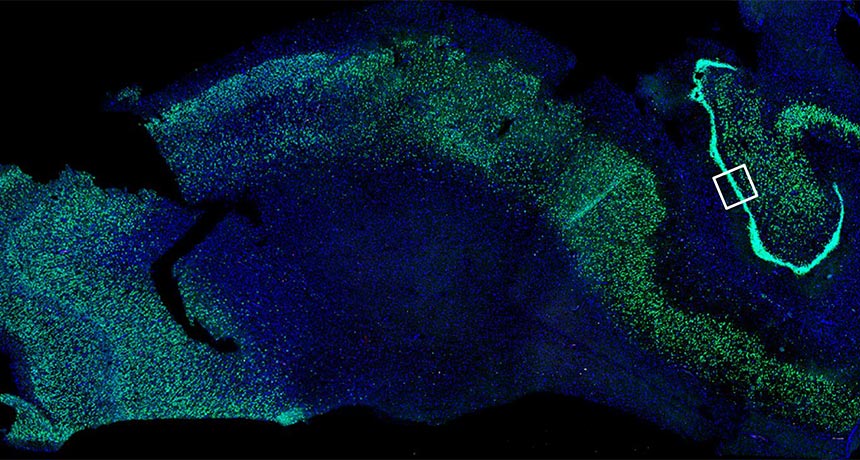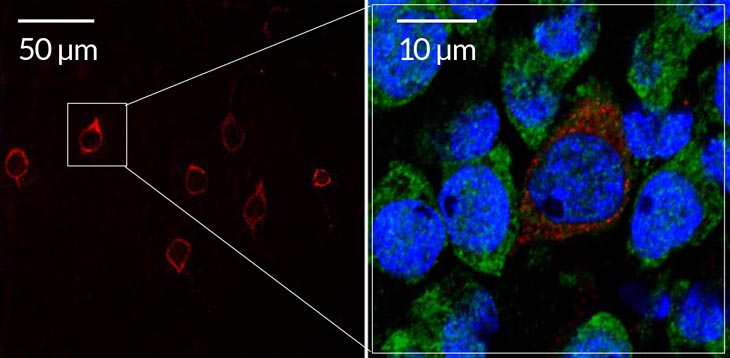Signs of new nerve cells spotted in adult brains
A study adds evidence to the ongoing debate over human neurogenesis

NERVE CELL RENEWAL A microscope image of a hippocampus from a healthy adult shows signs of nerve cell birth in a certain spot called the dentate gyrus (box).
E.P. Moreno-Jiménez et al/Nature Medicine 2019








